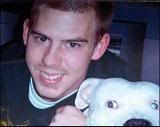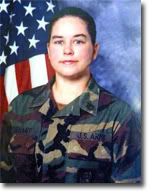House Veterans Affairs Health Subcommittee Explores How Best to Support Military Families
Yesterday, another important hearing, Mental Health Treatment for Families: Supporting Those Who Support Our Veterans, was convened on Capitol Hill by the House Veterans Affairs health subcommittee. [Audio now online; video link not presently available]
Rick Maze, Army Times:
A House subcommittee was urged Thursday to expand the Veterans Affairs Department’s authority to provide mental health counseling for the families of veterans, including National Guard and reserve members who have returned from combat.
Current law restricts VA to providing “limited services to immediate family members,” said Kristin Day, VA’s chief consultant for care management and social work service.
“The law provides, in general, that the immediate family members of a veteran being treated for a service-connected disability may receive counseling, education and training services,” Day told the House Veterans’ Affairs health subcommittee.
That leaves a lot of gaps for people who fall outside the military health care system, some critics say.

 From Kelly Kennedy via
From Kelly Kennedy via  On January 31, 2008, indirect fire
On January 31, 2008, indirect fire 

 In a few hours, my husband and I along with a veteran friend are attending slain NIU student and 12-year Army veteran Julianna Gehant's visitation. While I don't wish to overstate this, I was near her and the others when the incident occurred and will carry them in my heart forever.
In a few hours, my husband and I along with a veteran friend are attending slain NIU student and 12-year Army veteran Julianna Gehant's visitation. While I don't wish to overstate this, I was near her and the others when the incident occurred and will carry them in my heart forever.









 More lives dramatically changed by another base act of the type we've become all too familiar with over the past few years.
More lives dramatically changed by another base act of the type we've become all too familiar with over the past few years. Astounding when you see how our government really feels about caring for its vets. The
Astounding when you see how our government really feels about caring for its vets. The 


